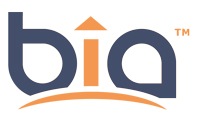
Overview
Project audits are a great way to get problem projects back on track or to perform a forensic review of a completed project for future reference and learning. The audit involves a comprehensive review of the project’s documentation and progress to uncover the root cause of problems. It looks at what is going well and what is not going well on the project through the eyes of the project team as well as the project’s key stakeholders. Auditors must examine all aspects of a project’s execution. They will consider whether or not the project’s scope is meeting current business requirements? Or whether the project plan is adequate; with sufficient detail? They will also check to see how well the project team has captured project risks and whether there is a strategy to manage them. A project audit is a wise investment when your project has to succeed. This program provides an overview of what you should include in a project audit and how to keep track of your projects.
Session Focus
This session will provide you with an overview of the project auditing process. We’ll explore the reasons that projects often fail and you’ll learn how to integrate controls that will prevent project failure. This includes information about what to audit and how to get to the bottom of project problems. We’ll show you some powerful tools and techniques that will help you manage projects more effectively, efficiently and productively.
Who Should Attend?
Management responsible for the successful execution of projects, including:
- External and Internal Auditors
- Accounting Department Directors and Managers
- Directors of Project Management Offices
- Senior Project Managers and Programme Managers
- Engineers
Key Outcomes
- Learn a clear guideline for project auditing that saves you time.
- Ensure that your projects are aligned with the organization’s strategic goals.
- Identify the strengths, weaknesses, opportunities and threats in all projects.
- Uncover the reasons why there is a lack of controls in projects.
- Ensure that consistent quality is achieved throughout the project, from initiation to execution and close.
- Apply the Project Management Institute’s (PMI) Project Management Body of Knowledge (PMBOK), ISO 10006:2003 Guidelines for Quality Management in Projects and ISO 21500 Guidance on Project Management.
- Anticipate and identify potential project problems before they occur.
- Audit the project’s methodology, processes, tools and templates
- Develop a clearer definition of what is being audited.
- Identify why projects are not being completed on time and/or within budget.
- Review the project’s tracking plan.
- Review the project’s change management process.
- Analyze the project risk assessments.
- Understand how to complete a project health check or audit from beginning to end.
- Analyze project schedules, budgets and quality.
- Create the final report and recommendations.
Course Duration
1 Day

